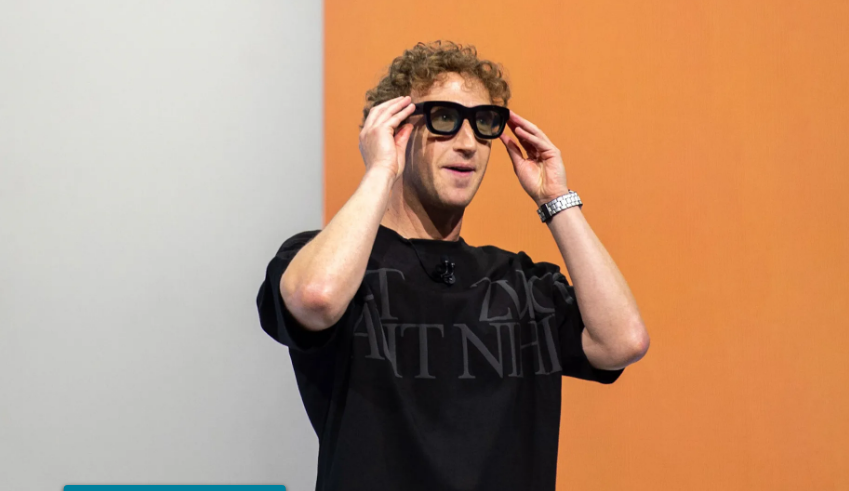Meta, the tech giant behind Facebook and Instagram, has taken a decisive step in dismantling its diversity, equity, and inclusion (DEI) initiatives, according to reports.
This significant change aligns with broader trends across corporate America as many companies reevaluate their commitment to DEI amid economic pressures and changing cultural attitudes.
Christian Talk Podcast
The company’s decision to scale back DEI programs has prompted strong reactions. For conservatives, the move signifies a long-awaited pivot away from the ideological narratives that have dominated corporate boardrooms. For progressives, however, it’s a step backward in efforts to address systemic inequalities.
Mark Zuckerberg on a new episode of Joe Rogan’s podcast BLASTS the Biden regime:
“They pushed us super hard to take down things that were true… anything that says vaccines might have side effects you basically need to take down.”
The truth is coming out. pic.twitter.com/Z1xayKFbO6
— Charlie Kirk (@charliekirk11) January 10, 2025
A Reshaped DEI Department
Meta’s DEI workforce has reportedly been reduced to fewer than 100 employees, down from a peak of 160. Layoffs earlier this year targeted key figures in the department, signaling the company’s shifting priorities. Reports indicate that Meta’s DEI-related budget cuts are part of a broader “efficiency” initiative launched by CEO Mark Zuckerberg. Dubbed the “Year of Efficiency,” this campaign has also included significant layoffs across other departments.
A Meta spokesperson declined to provide specific details about the cuts but emphasized that the company remains committed to fostering an inclusive workplace. “We’ve streamlined our DEI team to better align with our current goals and ensure resources are focused on the areas that matter most to our employees and our business,” the spokesperson said.
The Backlash and the Praise
Critics of the move have accused Meta of abandoning its social responsibility. However, conservatives view the decision as a victory against what they see as a coercive DEI culture that prioritizes activism over meritocracy and business efficiency.
Some commentators argue that DEI initiatives have outlived their usefulness and now serve as a form of corporate virtue signaling rather than a practical strategy for fostering workplace diversity. Meta’s decision, they contend, reflects a pragmatic approach to addressing these concerns.
Industry-Wide Trend
Meta’s rollback of DEI programs isn’t an isolated case. Companies across industries are reevaluating their DEI strategies amidst economic uncertainties and increasing skepticism from both employees and stakeholders. A recent Axios report highlighted that DEI-related job postings have declined by over 50% since their peak in 2020.
This trend has been attributed to multiple factors, including backlash from conservative consumers and shareholders, who argue that DEI initiatives can become politicized and detract from core business objectives. Many corporations are now opting for a more measured approach, focusing on tangible outcomes rather than broad ideological commitments.
Meta’s Broader Challenges
Meta’s retreat from DEI comes amid a host of challenges for the company. From regulatory scrutiny to stiff competition from platforms like TikTok, Zuckerberg’s company has faced mounting pressures. The emphasis on efficiency—and the decision to scale back DEI—reflects an attempt to navigate these challenges while maintaining profitability.
Critics argue that the move could damage Meta’s reputation among younger, more progressive demographics. However, supporters believe the decision is a necessary course correction, particularly as the company seeks to align itself with a broader consumer base that increasingly rejects overt political messaging from corporations.
The Conservative Perspective
For many conservatives, Meta’s decision is seen as an acknowledgment of the public’s growing disillusionment with the excesses of DEI. “It’s refreshing to see a major corporation recognize that social engineering and political indoctrination have no place in a healthy business model,” one commentator remarked.
This sentiment reflects broader frustrations with the perceived overreach of progressive ideologies in corporate America. Critics of DEI argue that it has often been used as a tool to enforce conformity to left-leaning political agendas, rather than genuinely promoting diversity of thought and experience.
A Sign of Things to Come?
Meta’s shift could mark the beginning of a larger cultural and political realignment within corporate America. As companies face increasing pressure to deliver value to shareholders and adapt to changing market conditions, many are likely to reassess their commitment to DEI.
While progressives view these developments as a setback, conservatives see them as a victory for free-market principles and merit-based systems. Meta’s decision to downsize its DEI programs underscores the growing realization that businesses must prioritize efficiency and performance over political posturing.
Conclusion
Meta’s decision to scale back its DEI initiatives highlights a pivotal moment in corporate America’s cultural landscape. As the company navigates an era of economic uncertainty and shifting societal values, its actions may serve as a bellwether for other corporations reassessing their priorities. For now, conservatives are celebrating what they see as a long-overdue course correction in the tech giant’s approach to workplace culture.
